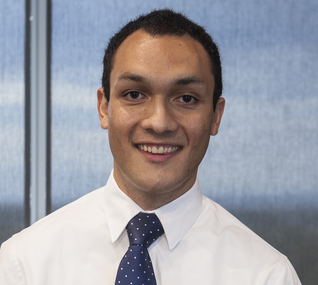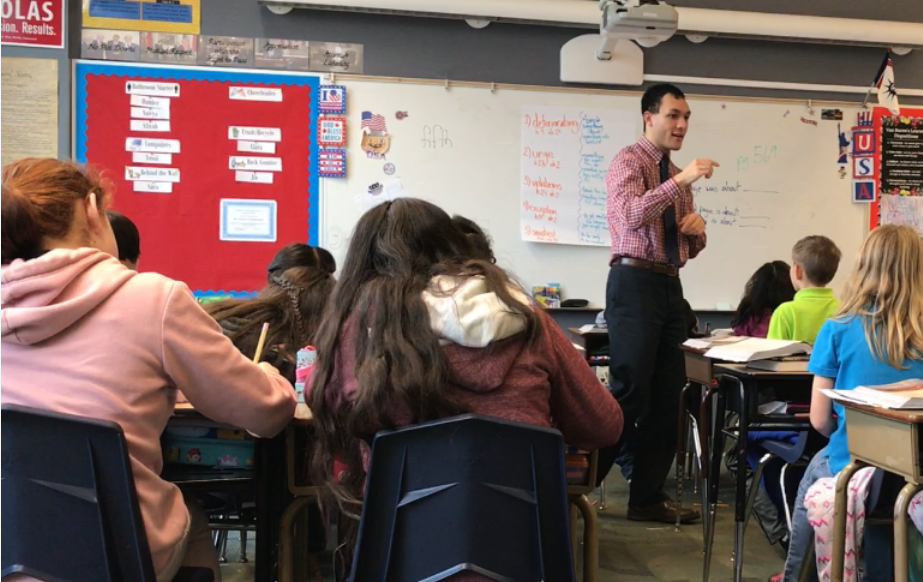How did a young man of color, the child of an immigrant father come to decide that his life’s mission is to work with students and schools in rural Idaho, battling against the achievement gap? Isaiah Folau describes his journey through a traditional teacher preparation program and Teach For America; a journey that he hopes will end with him leading a rural school and, eventually, a rural district.
My identity as an educator has roots that are grounded in the actions of my grandfather.
Born in the South Pacific island nation of Tonga, he believed adamantly that the best life for his children would be grounded in quality schooling, which they could find in the United States.

As such, he moved his seven children, my father being the third, to the cool dry mountains of Salt Lake City. He entrusted the public schools of Utah to provide the required education and they did their job well. My father, an immigrant, became a first-generation college graduate.
I was always an eager learner, but I never considered teaching as a profession until on the backs of supportive parents and great public schools, I, too, went to college.
Majoring in elementary education at Brigham Young University-Idaho, I was assigned a persuasive paper addressed to a specific person of my choice, on the cause of my choice. I chose to write to Gov. Phil Bryant of Mississippi. Though I had only been studying statistics and education for a semester, I was shocked to learn about the disparity in achievement between Mississippi and the rest of the nation. The state ranked dead last on many education measures.
It mattered little that this essay would never be sent to the governor. It gave me the opportunity to offer up with my emergent writing my emergent solutions. Though I had already declared my intent to teach, this assignment marked for me my entry into educational equity work.
Three years later, at the conclusion of my traditional teacher prep program and capstone student teaching experience, I faced a crossroads. I could continue teaching close to home in a Utah school district I loved, or take a risk and move to the western half of Idaho, the state that had so warmly welcomed me at the start of my college career. My longing for a contrast to my traditional experience, desire to more fully explore the field of teacher education, and most importantly my growing awareness of the achievement gap, motivated me to join the newly founded Idaho region of Teach For America.
Entering my first year of teaching I knew and felt confident about the basic procedures of teaching: creating strong lesson plans, executing them with strategies, and implementing rigorous content with high expectations.
What totally evaded me was the importance of developing a vision for my students and classroom. Defining, concretely, what success meant for me and my students would empower me to employ my abilities in a targeted manner.
I knew that I could identify what good teaching and learning was, but had yet to find my own personality as a teacher. To help me along, I received bi-weekly one-on-one coaching from TFA staff alongside a host of different professional development programs. This helped me to step into a third-person view of my classroom, allowing me to name the deficiencies and remedy them.
This teacher-judgement sense that I gained made all the difference in the advanced progress I led my classroom through in my second year. And it will be the lead quality allowing me to provide to my students the life-changing educational experience that my grandfather sought, and my father and I received.
My desire to focus my passion on rural education developed during college. On the plains of Idaho’s Upper Snake River Valley, I was enrolled in several classes that led me through experiences in half a dozen schools across three different rural counties.
Additionally, most of my professors had been rural teachers. My mother and her ancestors were educated in rural schools as well. Finally, my formal study of the rural achievement gap made me want to serve the children in the kind of community that had been most responsible for my career development.
 Having a strong instructional background, and believing the best school principals are also the best teachers, I’ve concluded that becoming a principal or superintendent is the direction I want to take my career. What I’ve found, though, is that nearly every teacher preparation program has an ancillary focus on urban education.
Having a strong instructional background, and believing the best school principals are also the best teachers, I’ve concluded that becoming a principal or superintendent is the direction I want to take my career. What I’ve found, though, is that nearly every teacher preparation program has an ancillary focus on urban education.
The study of rural education is almost nonexistent.
Knowing this, and aware of my ambitions, TFA staff recommended the Rural Schools Leadership Academy, part of TFA’s national School Leadership Program.
The program’s focus is to develop school leaders by helping current teachers create an instructional toolkit that improves their practice and simultaneously develops leadership skills – even in some of the most challenging circumstances imaginable.
Developing these tools against a backdrop of rural schools has helped center me on the issues facing rural education, sharpened my thinking about the role I want to play, the national network I can leverage, and the specific avenues I want to pursue. I feel well prepared to pursue educational leadership in graduate school enroute to an eventual principalship.
Teaching with TFA in a rural setting has developed my abilities and mindsets far beyond what two years of experience would typically provide.
Knowing the skills I’ve developed are fully transferable, I feel confident I can help nurture them in others. Growing fellow teachers in their instructional practice will be the focus of my emerging leadership and the greatest way to cultivate the memory, skills, and experience that Idaho planted in me at the start of my career.
Written by Isaiah Folau, who just finished up his second year teaching at Van Buren Elementary in Caldwell. He is a member of Teach For America.
